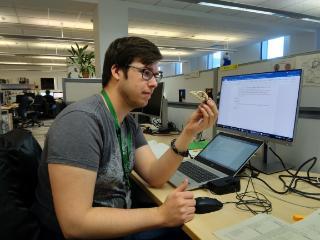Project 14
Changes in sleep as a measure of stress in laying hens
Project Details
Everyone knows the benefit of a good night's sleep, and how unpleasant sleep loss can feel. Animal sleep is not always well understood, but has been shown to be affected by events such as maternal deprivation and feed restriction. The aim is to investigate if sleep quality and quantity could be a novel welfare indicator in laying hens, because we know that sleep in other animals is altered by stress and that laying hens may be subjected to stressful events in their lifetime, for example brief hunger, pain, or longer-term stress through standard husbandry practices. The objectives of this project are to understand what normal and abnormal sleep look like in laying hens, and to evaluate if sleep could be a useful welfare tool by examining how it is altered by distinct acute stressors and by more subtle, long-term stressors (i.e. housing type). This will be achieved by a) measuring sleep duration and quality (as assessed by different sleep phases) in 12 hens during uninterrupted and disrupted nights' sleep. Sleep measures will come from observations of sleep behaviour (e.g. bird posture, eye(s) closed, head tucked under wing) alongside brain activity data measured by electroencephalography (EEG), which provide the most reliable measures of sleep. This will be followed by b) subjecting those hens to short-term stressors that they may experience in their lifetime, such as hunger, heat, and footpad pain. Finally, c) hens will be housed in small groups similar to commercial housing practices (i.e. on litter floors and in furnished cages) for a few months and their sleep behaviour monitored weekly, to assess if housing conditions (which are potentially stressful) alter sleep quality.



.jpg)
.jpg)
.jpg)
